❝ What must I do? – this is the most universal and urgent question of all; this is the daily bread of the human soul ❞
Mohamed Abdallah Draz, The Moral World of the Qurʼan (London; New York: I.B. Tauris, 2008). Page 292.

Mohamed Abdallah Draz, The Moral World of the Qurʼan (London; New York: I.B. Tauris, 2008). Page 292.
He was born on November 8th, 1894, in Mehallet Diyay, Desouk, Kafr ElSheikh, Egypt
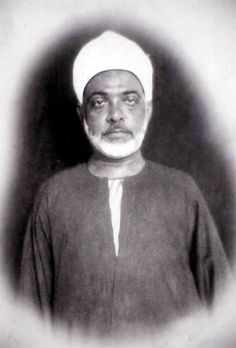 1905
1905
He moved to Alexandria in the beginning of 1905 and joined al-Azhar Institute, which was established by his father Abdallah Draz, whom Imam Mohamed Abdo appointed for the job.
He obtained his high school diploma from the Tanta Religious Institute (Al-Ahmadi Mosque), where his father, Abdallah Draz, was appointed vice-rector.
When his father returned as vice-rector to al-Azhar Institute in Alexandria, Draz continued his studies there, graduated at the top of his class, and was awarded "Al-Alameya" degree, which is equivalent to a Ph.D. He was then appointed as a professor at the Institute.
He started learning French at night school in 1916, and he graduated at the top of his class in 1919. His ability to express himself in French allowed him to engage in political debates and express the anti-colonialist sentiments of his fellow citizens to the diplomatic missions based in Cairo in 1919. It also enabled him to rectify misinterpreted facts about Islam by writing to publications such as Le Temps, among others.
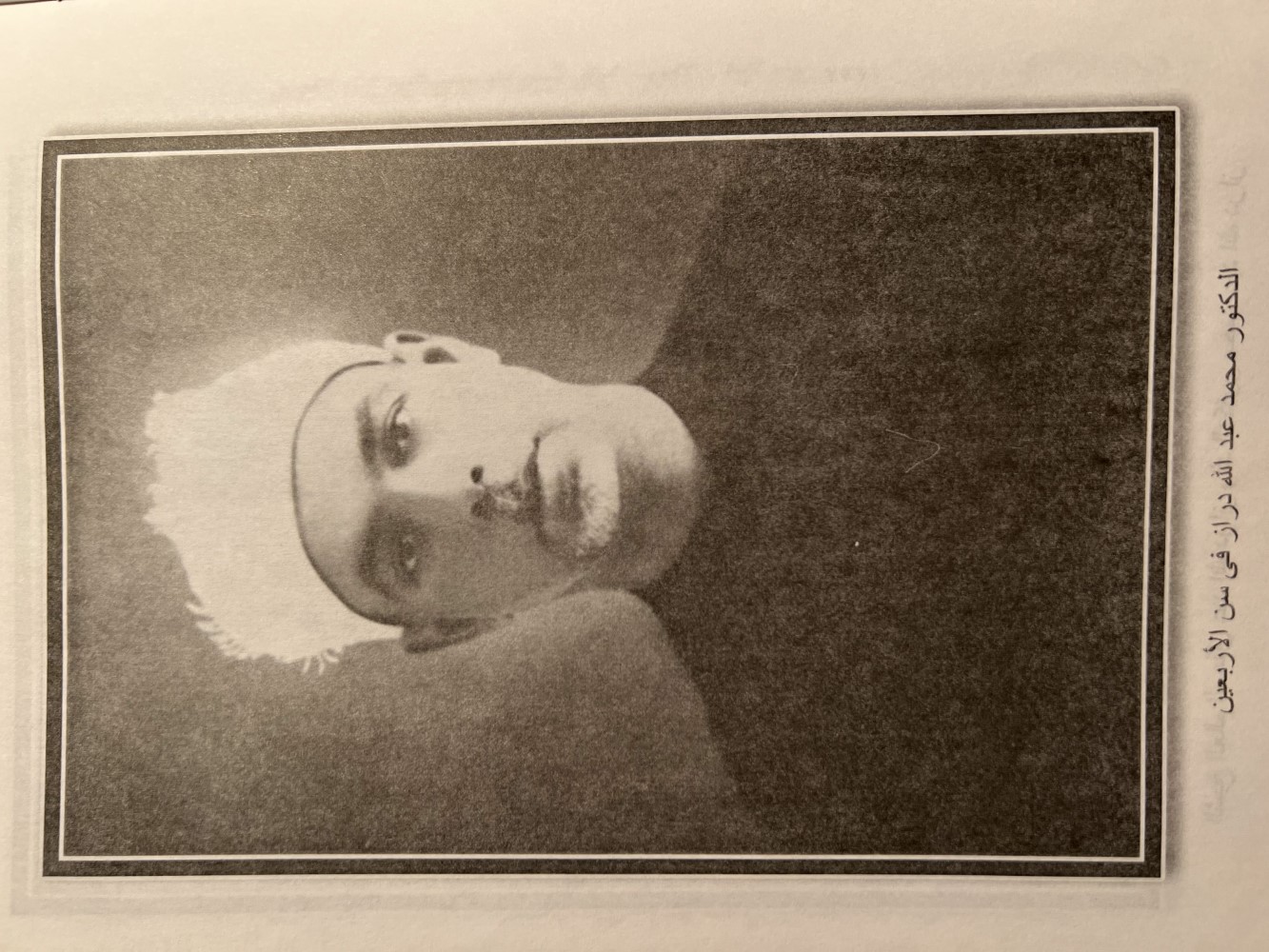 1928-1930
1928-1930
He moved to Cairo in 1928, where Sheikh Maraghy appointed him to teach at the Department of Higher Education at al-Azhar University. Later, when al-Azhar Colleges were established, he was selected to teach at the College of Theology in the faculty of Usul Al-Din (Fundamentals of Religion).
At the beginning of 1936, he performed the Islamic Pilgrimage "Hajj." A few months later, on May 21st, 1936, he sailed from Alexandria to France as part of a scholastic delegation from al-Azhar University.
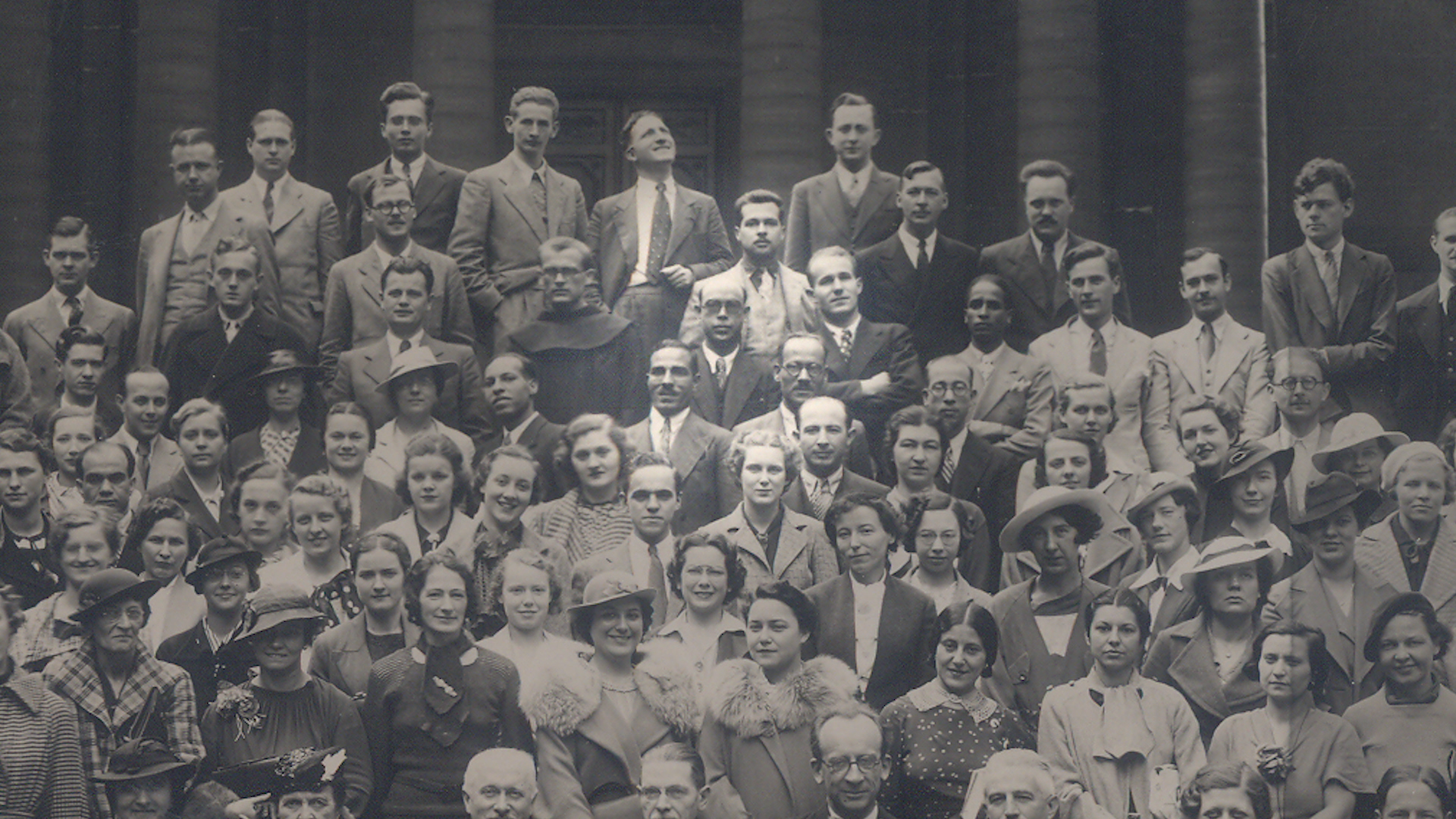 1936
1936
He joined the Faculty of Arts at the Sorbonne in 1936 and received his Bachelor of Arts in 1940.
He represented al-Azhar at the World Congress of Faiths at the Sorbonne in Paris in July 1939.
In 1940, when the Germans issued a warning to all Egyptians threatening arrest and a number of his colleagues were indeed taken into custody, Draz took it upon himself to defend them, paying little heed to his own freedom. It took several meetings with the German military commanders and many protests on his part, but eventually all the detainees were released.
He represented al-Azhar at the World Congress of Faiths in London, England in January 1947.
He defended his dissertation in Salle Liard at the Sorbonne on December 15th, 1947. He was awarded a doctorate with the highest distinction, Très Honorable.
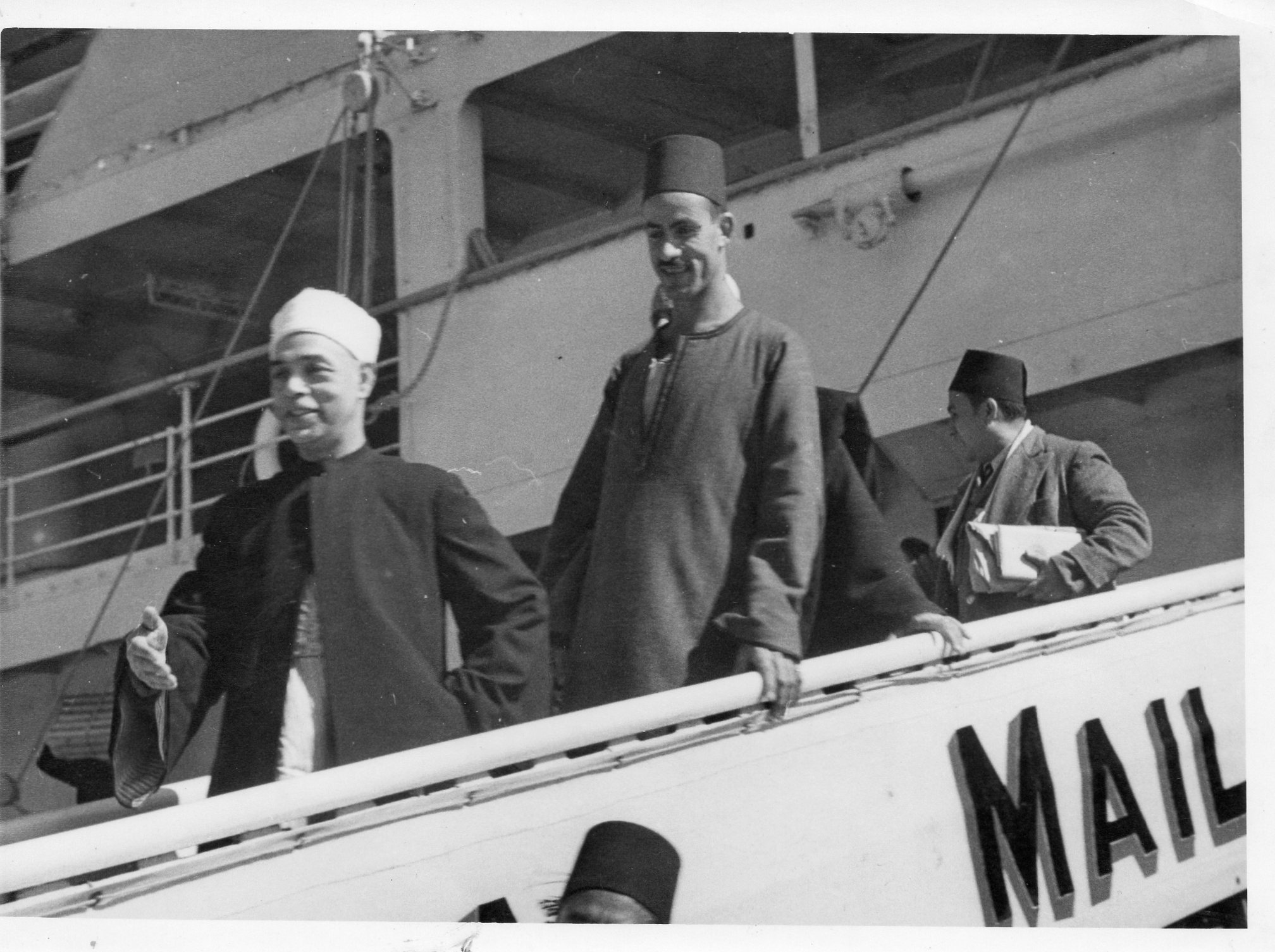 1948
1948
He left France and returned to Egypt with his family on March 15th, 1948.
He became a member of the Supreme Council of Scholars (Kebar al-Ulema) of al-Azhar in 1949.
He taught the history of religion at Cairo University and Qur'anic Commentary at Dar Al-Uloom, a teacher's college affiliated with al-Azhar. He also taught Arabic and moral philosophy at al-Azhar University and gave lectures at the Police Academy. Meanwhile, he oversaw the publication of his doctoral dissertations, Initiation au Coran and La Morale du Coran.
From the 4th to the 10th of December 1950, he represented al-Azhar at the International Universities Conference in Nice, France. He also represented al-Azhar at the Conference on Islamic Law in Paris, France, in July of 1951.
He met with the head of the Royal Court on June 19th, 1952, to express his dissatisfaction with the leadership of King Farouk and to advise him on a course of action.
He was approached to become the Grand Imam of al-Azhar, but his concern over the lack of autonomy in decision-making, which he believed should be independent of the state, prompted him to decline the offer.
On September 15th, 1952, his first radio broadcast aired and continued until 1957.
He represented al-Azhar at the International Islamic Colloquium in Lahore, Pakistan, in December 1957.
 1958
1958
He died during the International Islamic Colloquium in Lahore on January 5th, 1958, at 9:30 P.M., before presenting his paper "Islam's Approach to and Relationship With Other Religions." His funeral started from al-Azhar on January 9th, 1958.
Draz's scholarship and contributions to Islamic studies are still widely respected and studied today, particularly in the field of Quranic studies. His approach to critical inquiry and objectivity has inspired later generations of Islamic scholars to approach their work with similar rigor and openness.
Follow along with our articles to get more details of events and highlights from the life of M. A. Draz
Through the archives preserved by his sons, Mohamed Abdallah Draz’s great-granddaughter pieces together the fragments of his life. The journey unfolds from his native village of Mahallet Diyay, to the Azharite Institute of Alexandria, and war-torn Paris. Letters, diaries, expert testimonies, and family memories revive the peaceful doctrine of Islam he fought hard to spread throughout his life.
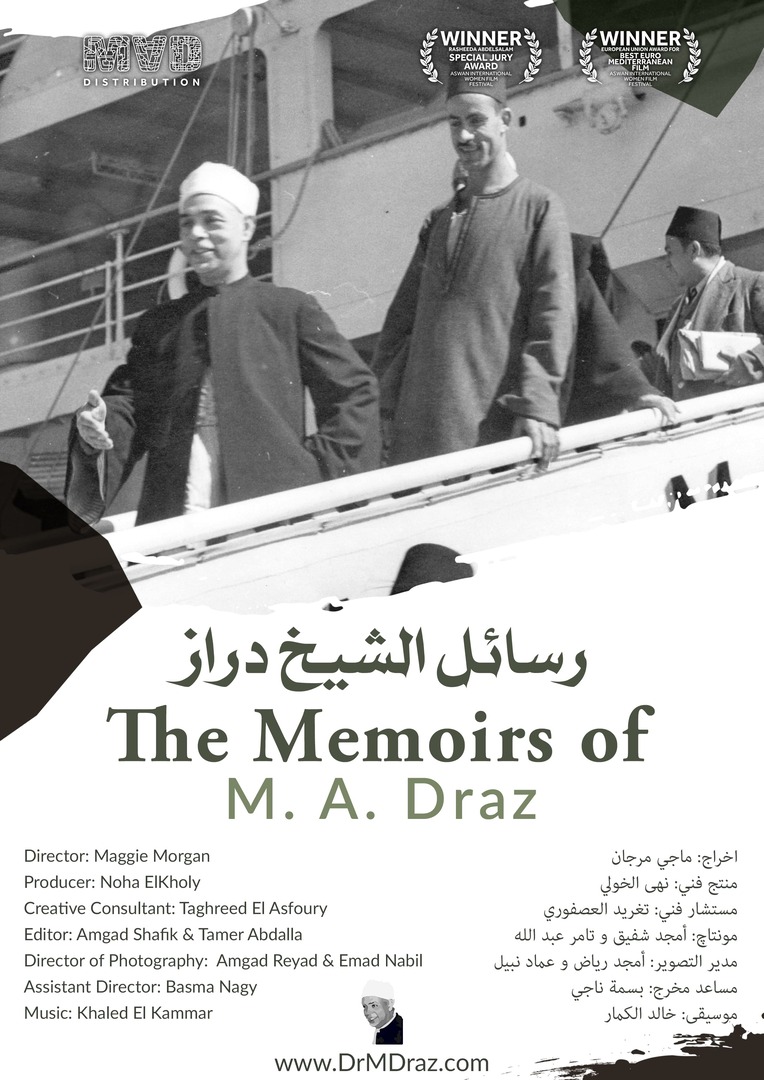
Decades after his death, Noha ElKholy uncovers letters, diaries, and photographs left behind by her great-grandfather, the Azharite scholar Mohamed Abdallah Draz. Through this archive, she embarks on a journey to illuminate M.A. Draz’s life story, from his humble beginnings in the village of Mahallat Diyay, to his formative years in Alexandria, and his scholarly pursuits in Paris.

Decades after his death, Noha ElKholy uncovers letters, diaries, and photographs left behind by her great-grandfather, the Azharite scholar Mohamed Abdallah Draz. Through this archive, she embarks on a journey to illuminate M.A. Draz’s life story, from his humble beginnings in the village of Mahallat Diyay, to his formative years in Alexandria, and his scholarly pursuits in Paris.



“Another excellent book by M A Draz. Goes into some details about how the Qur'an was preserved, and why it is highly probable that the Qur'an is the word of God.”

“This is an excellent companion to the Quran. It’s appropriate for a beginner but also highlights important and interesting translation issues. ”

“Another excellent book by M A Draz. Goes into some details about how the Qur'an was preserved, and why it is highly probable that the Qur'an is the word of God.”

“Really well written and accessible to the layman. A brilliant book about the life changing Quran.“
